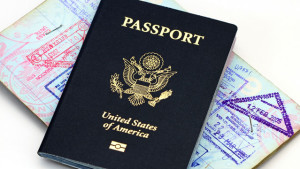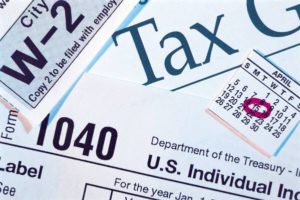Many banks, credit card issuers and other lenders have promised to help those impacted by the coronavirus pandemic. They’re offering to defer or reduce payments and waive interest charges and rebate fees for those who have lost jobs, had their hours reduced or otherwise lost income to the COVID-19 crisis.
The help usually isn’t automatic, however. You have to ask for it — and ask the right way.
In my latest for the Associated Press, the important questions to ask your bank or lender.
 Today’s top story: How to prepare for a recession. Also in the news: What to do if you can’t pay your mortgage, how to stay organized when you have multiple credit cards, and how to find a bank that pays you to open an account.
Today’s top story: How to prepare for a recession. Also in the news: What to do if you can’t pay your mortgage, how to stay organized when you have multiple credit cards, and how to find a bank that pays you to open an account. Today’s top story: How to make a student loan complaint that gets results. Also in the news: How to keep your spirits up in the long game of saving, how ex-offenders can rebuild with a bank account, and these airlines will let you change your flight for free because of Coronavirus.
Today’s top story: How to make a student loan complaint that gets results. Also in the news: How to keep your spirits up in the long game of saving, how ex-offenders can rebuild with a bank account, and these airlines will let you change your flight for free because of Coronavirus.  Today’s top story: Concerned about Coronoavirus? How to prepare your house, mind and bank account. Also in the news: 3 ways Millennials are getting money right, what to buy (and skip) in March, and 6 moves to make if you’ve saved more than $1,000 in your checking account.
Today’s top story: Concerned about Coronoavirus? How to prepare your house, mind and bank account. Also in the news: 3 ways Millennials are getting money right, what to buy (and skip) in March, and 6 moves to make if you’ve saved more than $1,000 in your checking account. Today’s top story: How ex-offenders can rebuild with a bank account. Also in the news: Determining how much you should spend on rent, how to have a baby even if you’re worried you can’t afford it, and how to handle awkward financial conversations.
Today’s top story: How ex-offenders can rebuild with a bank account. Also in the news: Determining how much you should spend on rent, how to have a baby even if you’re worried you can’t afford it, and how to handle awkward financial conversations.  Today’s top story: When leasing a car is the more frugal option. Also in the news: How to actually achieve your debt payoff resolution, 5 basic features you should expect from your bank, and holiday debt could take years to pay off.
Today’s top story: When leasing a car is the more frugal option. Also in the news: How to actually achieve your debt payoff resolution, 5 basic features you should expect from your bank, and holiday debt could take years to pay off. Today’s top story: Speedier payment systems could curb your costs. Also in the news: Black Friday vs. Prime Day: How they stack up, 5 signs an online loan is a debt trap, and everything you need to know about your 2020 taxes.
Today’s top story: Speedier payment systems could curb your costs. Also in the news: Black Friday vs. Prime Day: How they stack up, 5 signs an online loan is a debt trap, and everything you need to know about your 2020 taxes.